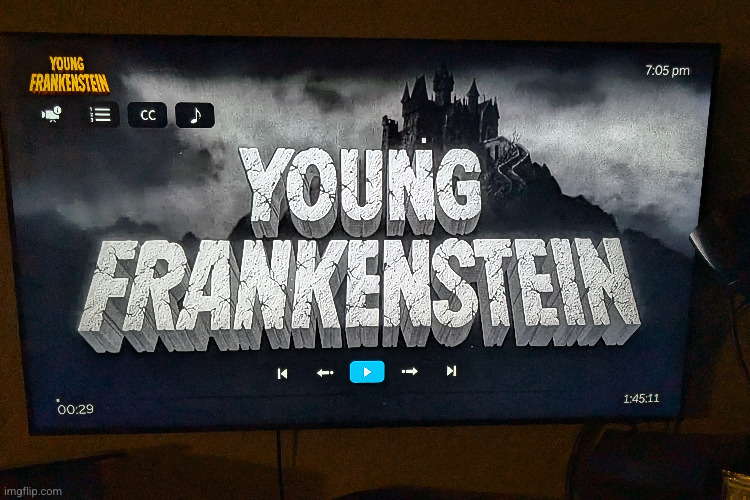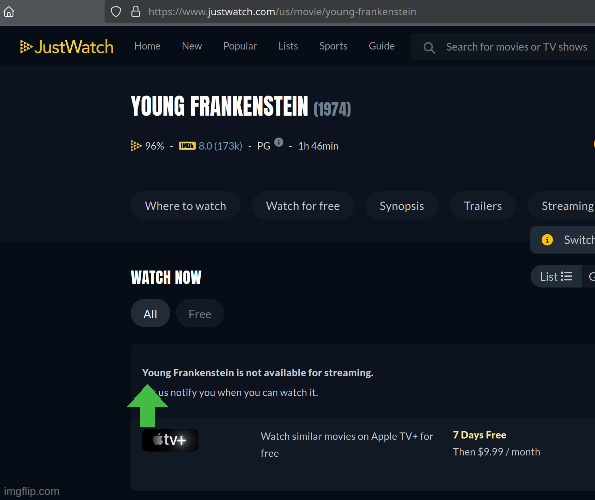And they wonder why we walk with a pegleg…
(And that “watch similar movies” thing can go to hell too)
ETA:
Jellyfin is great, yes.

I don’t think fully qualified means what you think it means…
Hmm, my understanding was that FQDN means that anyone will resolve the domain to e.g. the same IP address? Which is the case here (unless DNS rebinding mitigations or similar are employed) — but it doesn’t resolve to the same physical host in this case since it’s a private IP. Wikipedia:
A fully qualified domain name is distinguished by its lack of ambiguity in terms of DNS zone location in the hierarchy of DNS labels: it can be interpreted only in one way.
In my example, I can run
nslookup jellyfin.myexample.com 8.8.8.8and it resolves to what I expect (a local IP address).But IANA network professional by any means, so maybe I’m misusing the term?
Hmm, my understanding was that FQDN means that anyone will resolve the domain to e.g. the same IP address?
It just means it’s the full format, similar to absolute vs relative paths on a filesystem.
jellyfin.myexample.comis fully qualified (technically there should be a trailing dot but that’s rarely enforced these days) - doesn’t matter what it resolves to.jellyfinis not fully qualified - nor isjellyfin.myexample. This matters when you start talking about records in different zones - for example you could have an A record forjellyfininmydomain.com.Ok so it is fully qualified then? I’m just confused because it sounded like you were saying I wasn’t using the term correctly in your other comment.


